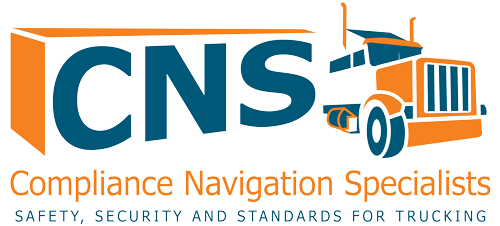Clearing the Confusion: What a “Driver CSA Score” Really Means

In the trucking world, safety scores are everything. Whether it’s insurance rates, hiring decisions, or DOT inspections, people want to know if a driver is “safe.” But here’s a phrase that often leads to confusion:
“What’s your CSA score?”
If you’re a commercial driver and have been asked this, let’s set the record straight:
There is no such thing as a “driver CSA score.”
Drivers have an MVR, PSP, and inspection history—but only companies have CSA scores.
Let’s break down what this means—and what’s actually being referred to when someone says “driver CSA score.”
What is a CSA Score?
CSA stands for Compliance, Safety, Accountability, a federal program run by the FMCSA (Federal Motor Carrier Safety Administration). The CSA program tracks company-level safety performance through a scoring system.
These scores are based on:
- Roadside inspections
- DOT-reportable crashes
- Safety violations (e.g., logbook, equipment, substance/alcohol)
- Investigation results
CSA data is grouped into seven categories called BASICs:
- Unsafe Driving
- Hours-of-Service Compliance
- Driver Fitness
- Controlled Substances/Alcohol
- Vehicle Maintenance
- Hazardous Materials Compliance
- Crash Indicator
Motor carriers are scored based on violations involving their trucks and drivers. If a driver receives a violation during an inspection or crash event, that violation contributes to the motor carrier’s CSA score—not the individual driver’s.
What Is the “Driver Safety Score”?
The term most people are actually looking for when they say “driver CSA score” is either:
- Motor Vehicle Record (MVR)
- Pre-Employment Screening Program (PSP) report
What’s the Difference Between MVR and PSP?
| Type of Record | What It Tracks | Who It Applies To | Used For |
| MVR (Motor Vehicle Record) | Traffic violations, license status, point history | All drivers (CDL and non-CDL) | Insurance, law enforcement, hiring, CDL disqualification |
| PSP Report | FMCSA-recorded crashes, roadside inspections, violations | CDL drivers only | Hiring decisions by motor carriers |
| CSA Score | Company’s fleet-wide violations, crashes, inspection results | Motor carrier only | DOT enforcement, audit targeting, carrier reputation |
Learn more: What Happens If You Get a Warning for Passing a Weigh Station?
What Does “0 Points on Record” Mean?
When a driver tells an officer they have “0 points on record,” they’re referring to their MVR—a state-level record of moving violations and driver’s license status.
Most states have a point system for tracking violations:
- Speeding = 2–4 points
- Running a red light = 3 points
- Reckless driving = 4+ points
- DUI = Automatic suspension or disqualification
0 points means they have:
- No recent state-reportable traffic violations
- A clean license in good standing
- A good driving reputation in the eyes of insurers and some employers
But here’s the kicker:
MVR points ≠ FMCSA safety data.
Why It Matters
Many drivers assume that having a clean MVR means they’re in the clear, but violations like:
- Vehicle maintenance issues
- Hours-of-Service violations
- Logbook falsifications
- Failed inspections
…may never show up on the MVR—but they absolutely show up on your PSP report, and they do affect your carrier’s CSA score.
The Bottom Line
- CSA Score = Motor Carrier Safety Record
- PSP Report = Driver’s FMCSA safety history
- MVR = Driver’s state-level license and violation record (“driver safety score”)
So next time someone asks for your “CSA score,” what they probably want to know is:
- Is your MVR clean?
- What’s on your PSP?
And if you’re a carrier, understanding these differences is critical for smarter hiring, compliance, and risk management.
Need Help Pulling your CSA Score, MVRs or PSPs?
CNS can help carriers pull MVRs, PSP reports and monitor CSA scores. We also offer driver qualification file management, safety auditing, and compliance support to keep your fleet protected and on the road.
If you need help or have any questions, fill out the form below or contact us at 888.260.9448 or info@cnsprotects.com and we would be glad to help.
Questions about DOT Compliance, Licensing, Audits, Programs, etc.?
Our DOT Specialists are here to help!
What are you searching for?
Is DOT Compliance your Top Priority?
Our DOT Compliance Programs ensure it is your top priority and keeps your business running.
Related Services
Subscribe to our Monthly Newsletter
Receive the latest transportation and trucking industry information about FMCSA and DOT Audits, Regulations, etc.
Related news
Trucking News
Get the latest trucking news on DOT Compliance, Licensing, Audits, and more!

Paper Medical Cards Still Valid: FMCSA Issues 60-Day NRII Transition Waiver for CDL Drivers
The Federal Motor Carrier Safety Administration (FMCSA) has issued a new waiver related to the National Registry II (NRII) medical certification process, extending temporary flexibility

Amazon Relay’s New Safety Matrix: What Carriers Need to Know Before February 2026
Amazon Relay is raising the bar on carrier safety—and for many fleets, the clock is already ticking. While Amazon has long relied on FMCSA SMS

Pennsylvania’s Non-Domiciled CDL Program is Changing: What Happened, What Comes Next, and What Carriers Should Expect
Pennsylvania’s entire non-domiciled CDL system is heading for a major overhaul that is being pushed by federal pressure, public safety concerns, and politics. Here’s what
